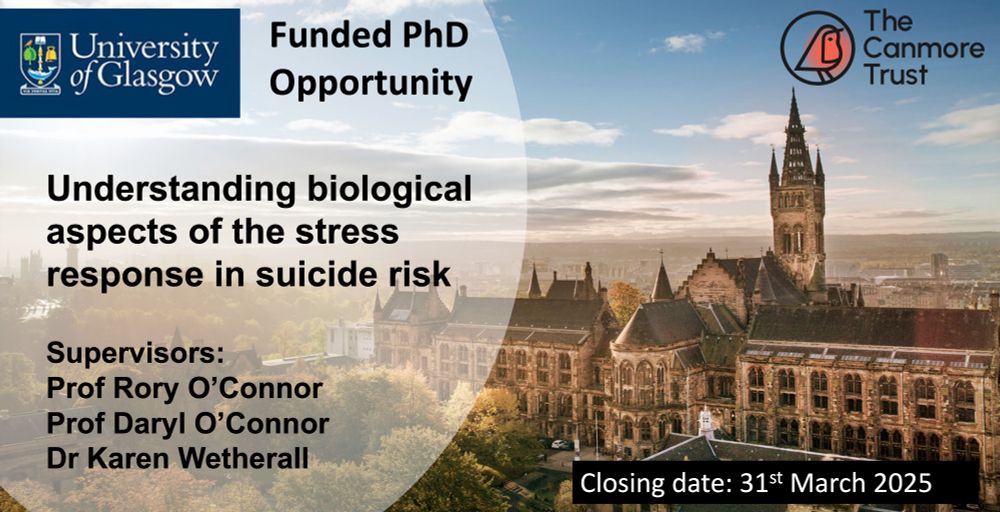
Interested in public health, mental health, gender based violence, violence prevention, health inequalities, qualitative research, systems approaches, complexity and structural change to improve population health
Reposted by Caroline M. King

Reposted by Caroline M. King

theconversation.com/minimum-alco...
Reposted by Caroline M. King

www.ippr.org/articles/hom...
Reposted by Caroline M. King, Claire L. Niedzwiedz

Exciting fully funded PhD opportunity.
Are you passionate about understanding & preventing suicide?
If so, why not consider joining us to undertake a PhD generously funded by the Canmore Trust?
www.findaphd.com/phds/project...
@daryloconnor.bsky.social
Reposted by Caroline M. King

Please help us spread the word!
#Farming #Agriculture
Reposted by Caroline M. King

published in Journal of Epidemiology and Community Health
Reposted by Caroline M. King

authors: Clare Bambra, Courtney McNamara and Luke Munford, Sophie Wickham
To get Britain working we need to get Britain healthy
Published 17 January 2025
Read it here: doi.org/10.1136/bmj....

Reposted by Caroline M. King

#HousingCrisis
Reposted by Caroline M. King

“The contribution of childhood adversity to adult socioeconomic gradients in mortality: a Swedish Birth Cohort analysis”
#healthinequality
www.sciencedirect.com/science/arti...
Reposted by Caroline M. King


A fascinating piece from Sandy Goldbeck-Wood on how Norway ended up in such a good position with respect to public service and shared social responsibilities.
Lessons for Scotland, perhaps?
Link here:
www.bmj.com/content/387/...
Reposted by Caroline M. King, Jane Lydon
Reposted by Caroline M. King

Reposted by Caroline M. King

Reposted by Caroline M. King

Reposted by Caroline M. King

Prioritising social infrastructure should be at the heart of economic policies that aim to promote gender equality. 💜
Reposted by Caroline M. King

Reposted by Caroline M. King, Pedro Ramos

www.nytimes.com/interactive/...
Reposted by Caroline M. King

…so we let our leaders off scot-free regarding the worsening political, commercial, social-structural & environmental reasons for poor health
www.theguardian.com/society/2024...
Reposted by Caroline M. King


Moreover, major new resolutions were adopted at the 2024 World Health Assembly.
bit.ly/4gpxQJK
Reposted by Caroline M. King
-track trends over time
-observe them across different population groups & contexts
Above all, continuing to describe health inequalities means refusing to accept them, refusing to turn away & advocating for justice
Reposted by Caroline M. King

www.theguardian.com/world/2024/n...



